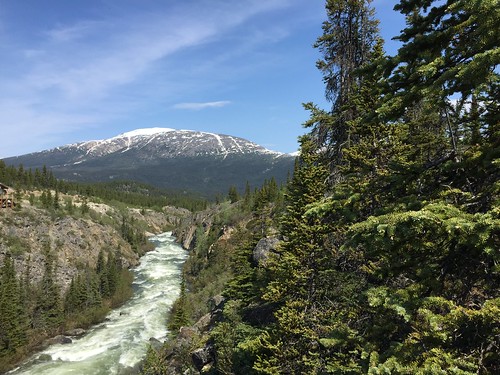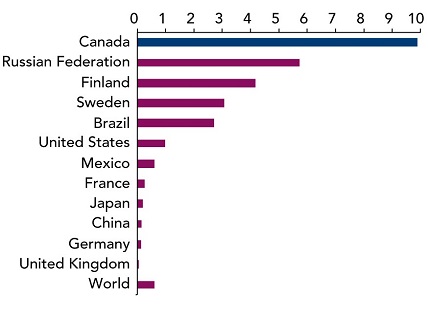
All this month we will be taking a look at what a changing climate means to Agriculture. The ten regional USDA Climate Hubs were established to synthesize and translate climate science and research into easily understood products and tools that land managers can use to make climate-informed decisions. The Hubs work at the regional level with an extensive network of trusted USDA agency partners, technical service providers, University collaborators, and private sector advisers to ensure they have the information they need to respond to producers that are dealing with the effects of a variable climate. USDA's Climate Hubs are part of our broad commitment to developing the next generation of climate solutions, so that our agricultural leaders have the modern technologies and tools they need to adapt and succeed in the face of a changing climate.
There are many reasons landowners value forests - their iconic beauty, cultural connections, wildlife, recreation, and economic opportunities. More reasons and in-depth information can be found in the USDA Forest Service National Woodland Owner Survey. The bottom line is forests help to sustain our local communities: ecologically, economically, and culturally, and many forests are vulnerable to climate change. These ecosystems are already responding to changing conditions, and climate change is anticipated to have a pervasive influence on forests over the coming decades.
Careful forest stewardship involves long-term planning, which naturally includes the consideration of these changing climate influences. This is especially true in northern forests that formed in cold climates, but are now beginning to experience rapid change. Our northern neighbors in Canada manage 397 million hectares of forests and woodlands (approximately 10% of the worlds forest cover), which face many of the same climate change impacts and challenges that we are grappling with in the United States.
Because each country shares a similar set of values and challenges related to climate impacts on forests and agricultural lands, the USDA Northern Forests Climate Hub is actively working with Natural Resources Canada and the Canadian Forest Service to share scientific and technical expertise pertaining to climate change adaptation, resources and tools. The purpose of this work is to build meaningful connections and partnerships that will aid natural resource professionals to make climate-informed decisions in their management and planning activities regardless of which nation they work in.
Recently, Dr. Chris Swanston, Director of the USDA Northern Forests Climate Hub was invited by Natural Resources Canada to speak to a variety of groups, including presenting at the Adaptation Canada conference. While visiting, Dr. Swanston shared forest adaptation tools and real-world examples developed through the Climate Change Response Framework, which is led by the Northern Institute of Applied Climate Science. He also actively learned from the Canadian Forest Service’s Forest Change Initiative, which has developed climate indicators, assessment, and tools for northern forests.
Nationally, the USDA Climate Hubs could be a platform for science delivery between both countries, sharing not only resources created in the U.S. but also Canadian approaches to climate adaptation planning and implementation strategies. The strategy to bridge science and management as an approach to considering climate change impacts on public and private lands was by all accounts well received, and the USDA Northern Forests Climate Hub looks forward to future engagements and collaborations. The pace of change in our northern forests dictates that we learn quickly and learn together.


